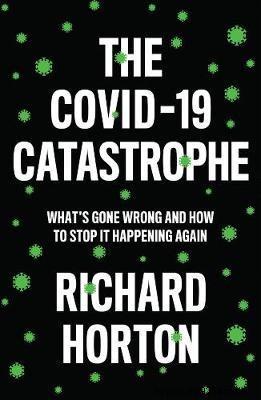In a recent interview, Richard Horton, editor of The Lancet , returns to the withdrawal of the study on hydroxychloroquine which has recently caused a stir. The interested party analyzes the mistakes made and draws up an unflattering assessment of the Covid-19 health crisis, in particular due to Western arrogance.
On May 22, 2020, the British journal The Lancet had published a controversial study on hydroxychloroquine. Led by Pr. Mandeep R Mehra of Harvard Medical School (United States), the study in question had been strongly criticized. Indeed, it believed that hydroxychloroquine had not proven its effectiveness on hospitalized Covid-19 patients and, even worse, evoked a high risk of mortality.

After this release, the World Health Organization Health (WHO) had stopped clinical trials ongoing on hydroxychloroquine. However, an open letter published by dozens of researchers and an update from The Lancet prompted the WHO to order the trials to resume. In the end, the British journal had no choice but to completely delete the study after the withdrawal of three of its authors.
You should know that the quality and veracity of the data have been the central point of contestation of the study. Moreover, the fourth author – Dr. Sapan Desai – is none other than the general manager of Surgisphere, the obscure company that provided the same data. However, this vascular surgeon is subject to three ongoing medical malpractice proceedings in the United States!
In an interview published in Liberation on June 15, 2020, Richard Horton returned to this case. The person concerned indicates that peer review is a poor detector of fraud and does not represent a guarantee of veracity. In reality, the only way to verify a study is to repeat all the experiments step by step. Richard Horton recalls that the purpose of peer review is to assess the acceptability of a publication. However, the publication of May 22 seemed plausible.
Furthermore, the three authors who withdrew did not check the data made available to them. If this last point is hardly believable, Richard Horton believes that we should not stop there. The latter thinks that it would be good to carry out the investigation in order to better understand the ins and outs of the study. According to him, this study represents a failure for science and its withdrawal is a good thing.
In this month of June 2020, Richard Horton is publishing a book called The Covid-19 Catastrophe . If the person concerned does not mention China's cover-up attempts at the very beginning of the epidemic, he welcomes the rapid mobilization of local scientists . After the alert issued to the WHO, the world indeed quickly learned of the description of the disease, the genetic sequencing of the coronavirus and the way in which it was transmitted.

However, Richard Horton points to China bashing by Donald Trump but also other leaders. This was intended to distract from their own mistakes, especially in public health response. Remember, however, that the United States' Covid-19 balance sheet is the most catastrophic:more than 2.1 million cases for almost 120,000 deaths.
The Editor of The Lancet recalls that this crisis is the source of a outburst of animosity towards China and racism towards Asians in general. Apart from the ignorance of some, it would be partly "Western arrogance" placing Chinese science and medicine on a lower level. According to Richard Horton, this arrogance cost tens of thousands of lives.